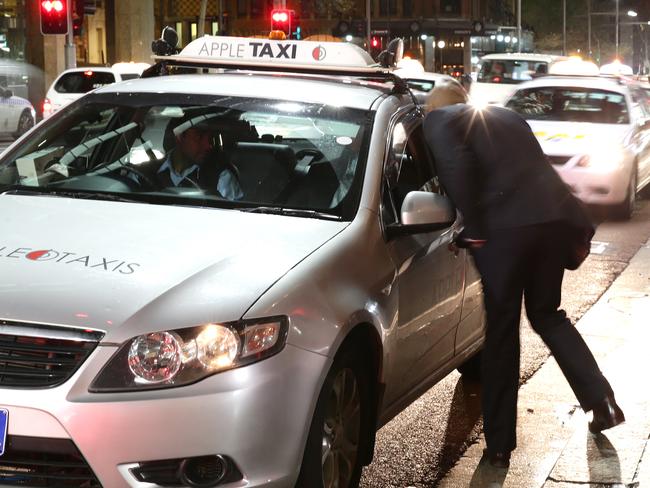How the Harper Review is a win for consumers
FROM taxis to cars to shopping hours, a whole raft of changes are coming our way to make our lives easier and cheaper. This story might cheer you up.
YOU never thought you’d see the day but it’s finally happened. Hundreds of pages of recommendations from a government report that’s designed to make your life cheaper and easier.
The final report of the Competition Policy Review, also known as the Harper Review, was handed down yesterday. The first report of its kind in over 20 years, it outlined areas in competition that could be improved so consumers can get a better deal and better service. Chief among these are recommendations to tackle the taxi industry, pharmacies, retail trading hours, intellectual property, energy and zoning.
In other words, life is about to get sweeter.
Many of the report’s recommendations have already received the thumbs up from consumer groups, including Choice. “This is an ambitious and thorough report with the potential to reshape the competitive landscape for the coming decades,” says Choice chief executive Alan Kirkland.
“As we debate Professor Harper’s many recommendations, our message to the Federal Government is to stay focused on the endgame for competition policy, which is making life better for Australians. These reforms are about delivering Australian consumers better prices and services, especially where some domestic industries have long been shielded from competition.
SHOP ANYTIME
The Harper Review wants consumers to have the convenience of greater shopping hours. Currently, retail trading hours are government by the state governments so there is no consistency across the country. Furthermore, especially around public holidays, there are different restrictions on trading hours within the same city. For example, on Boxing Day, only parts of Sydney, such as the CBD, are allowed to open for business.
The Harper Review has listed retail trading hours as an area ripe for immediate reform. The review wants to see restrictions around trading hours to be limited to Good Friday, Christmas Day and the morning of Anzac Day. It emphasised, however, that lifting restrictions should not mean that retailers are obliged to open for longer than they want to — the idea is to give them the flexibility and the choice to do so.
PARALLEL IMPORTS
The review wants to see restrictions on parallel imports removed which would allow goods to be imported at a cheaper price. The report singled out books and second hand cars as examples of products that would come down in price. For example, book prices could fall by 35 per cent.
The report said: “Parallel import restrictions are similar to other import restrictions (such as tariffs) on that they benefit local producers by shielding them from international competition. They are effectively an implicit tax on Australian consumers and businesses.
“Removing parallel import restrictions would promote competition and potentially lower prices of many consumer goods, while concerns raised about parallel imports (such as consumer safety, counterfeit products and inadequate enforcement) could be addressed directly through regulatory and compliance frameworks and consumer education campaigns.”
TAXIS

The Harper Review listed taxis and ride sharing services such as Uber as a priority area for reform. The report said that industry reform in most states and territories is long overdue and that current restrictions, such as limited number of taxi licences, are constraining competition in the sector and leaving consumers worse off.
If the recommendations are adopted, prepare for your taxi fares to come down in price. Expensive taxi licences ($290,000 in Victoria and $390,000 in New South Wales) account for 15 to 20 per cent of the fare price to consumers. The review wants to see less restrictions on the number of licences.
In a blow to the taxi industry, the report said that rather than crack down on what the taxi industry sees as cowboy competitors, they should be encouraged. The report noted that while there is public acceptance of ride sharing services such as Uber and that consumer-driven change is inevitable, it does not endorse ‘illegal’ activity. Importantly, the review said any regulation of emerging technology-based services like Uber should be consumer-focused and not on protecting existing business models or inhibiting competition.
The NSW Taxi Council said in a press release that they reject the review’s findings.
PHARMACIES
Currently, there are restrictions around where pharmacies can operate and who can operate them (only pharmacists and friendly societies). The review wants to see the current restrictions repealed and replaced with new regulations to better serve consumers and bolster competition.
However, there is concern the deregulation of the pharmacies sector could see Coles and Woolworths make significant inroads into the market.
Senator Nick Xenophon was critical of the review’s recommendation: “Make no mistake, deregulating pharmacies will mean Coles and Woolworths will dominate this sector in next to no-time. The consequences could include a real reduction in service and quality. Do we really want medications and associated health advice to be doled out like discount bread and milk?
“Community Pharmacies are already the whipping post for ‘quick and dirty’ savings in the health sector — with accelerated price disclosure changes slashing an average of $90,000 in revenue, per pharmacy, this year alone. This has already led to job losses and a reduction in service. Deregulation will tip this sector over the edge, with regional Australia bearing the brunt.”



